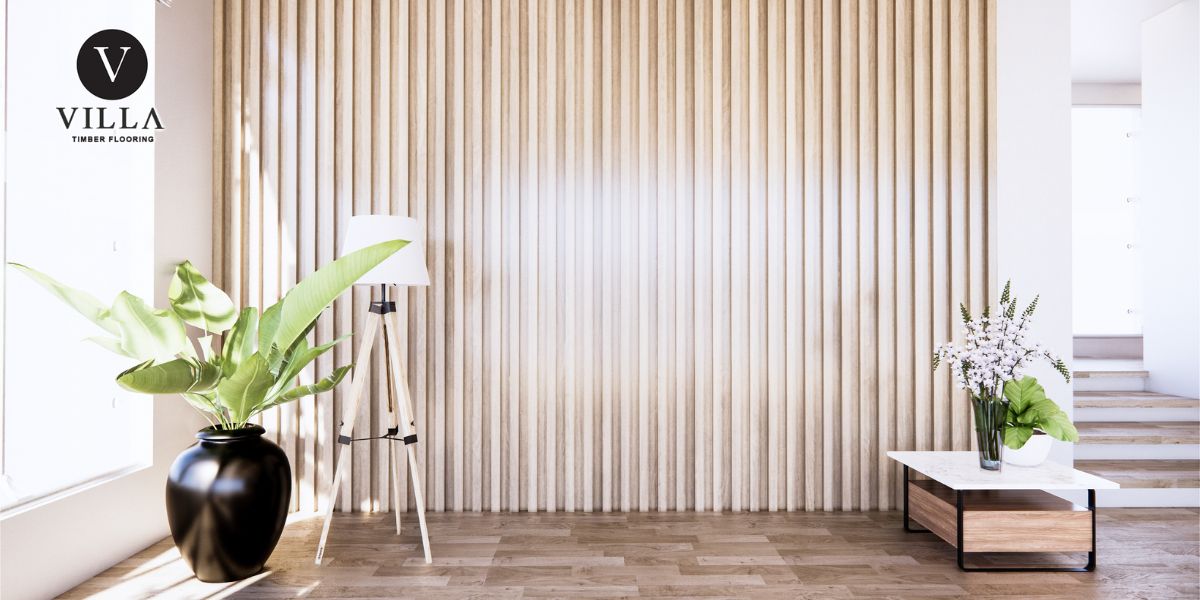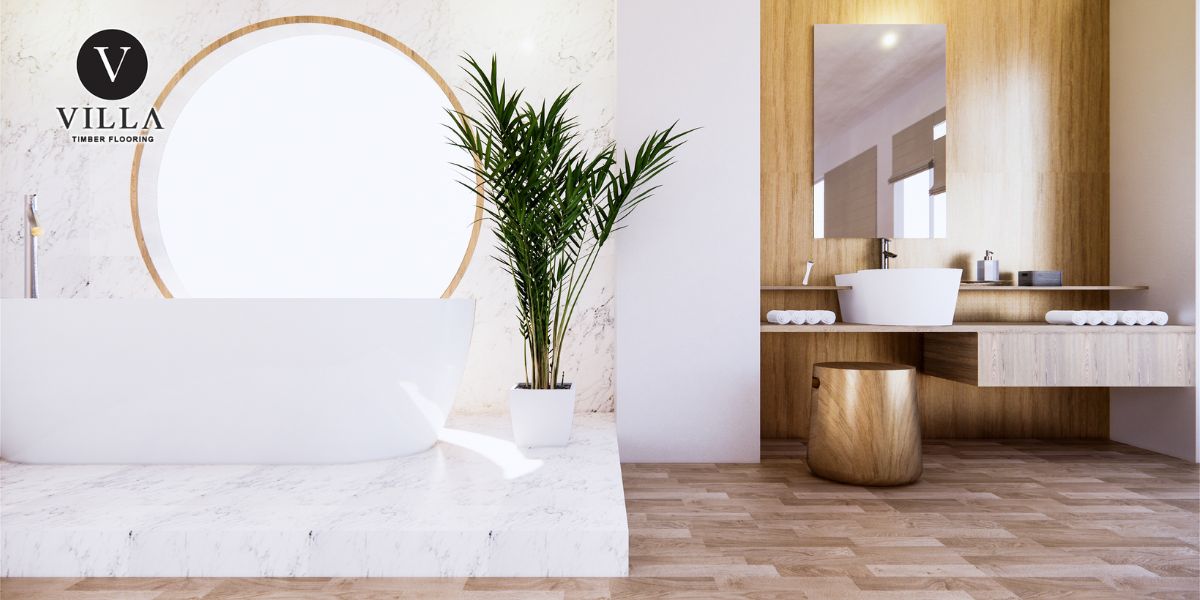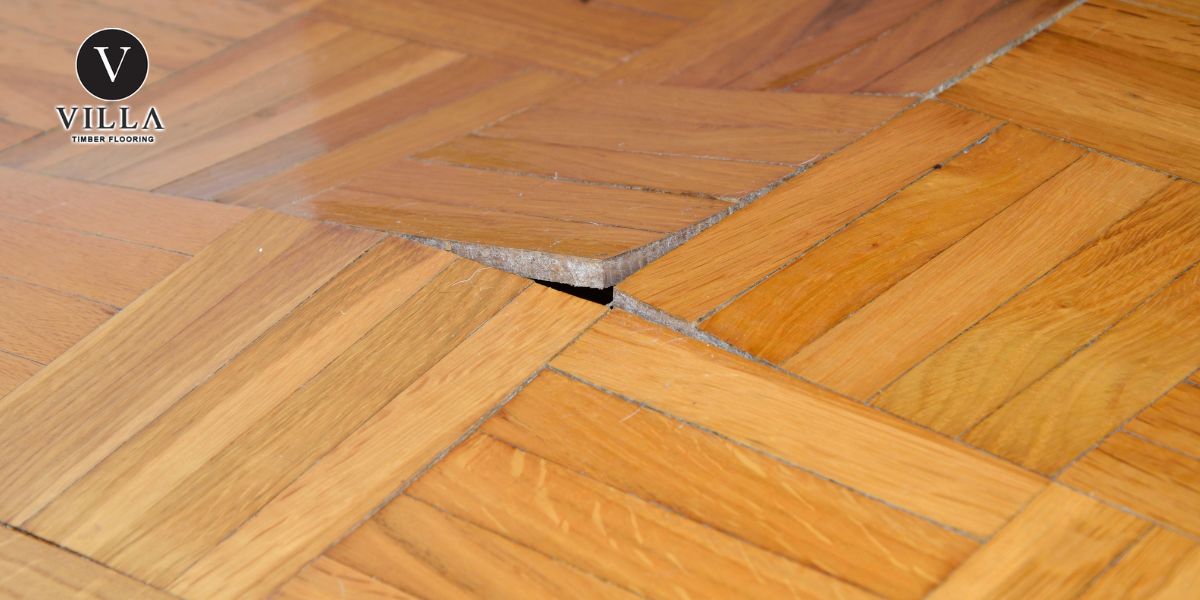Squeaky Laminate Floor Fix
Saturday, 28/09/2024
Administrator
1182
28/09/2024, Administrator
1182
Squeaking noises in laminate flooring can be both irritating and diminish the aesthetic value of your living space. In this article, Timber Villa would like to share some tips to help reduce squeaking in laminate flooring and effectively resolve this issue.
1. Causes of Squeaking in Laminate Flooring
Several factors contribute to squeaking in laminate flooring, from material quality to installation methods. Below are the main causes:
1.1 Material Quality
The quality of laminate flooring directly affects the likelihood of squeaking. Inferior products, often made from recycled wood, tend to warp and crack with changes in temperature and humidity.
Low-quality products also lack durability, making them more prone to damage and noise when walked on. It’s important to choose flooring from reputable brands with certified quality to ensure durability and minimize squeaking.
1.2 Improper Installation
Incorrect installation is another common cause of squeaking in laminate flooring. If the planks aren’t aligned or connected properly, gaps or pressure points can form, leading to noise when weight is applied.
Many people overlook the importance of leaving expansion gaps between the flooring and walls, which can cause the planks to press against each other as they expand and contract due to changes in temperature and humidity.
Hiring a professional team for proper installation ensures the flooring is fitted correctly, minimizing unwanted noise.

1.3 Changes in Temperature and Humidity
Environmental factors like temperature and humidity play a critical role. Laminate flooring is sensitive to climate changes. When humidity increases, the wood absorbs moisture and expands; when it decreases, the wood contracts.
This expansion and contraction can cause the planks to rub against each other, leading to squeaking noises, especially during dry winter months when the floor contracts suddenly.
To mitigate this, use air conditioners or humidifiers to maintain stable humidity levels and protect the longevity of the flooring.
2. How to Check the Condition of Laminate Flooring
Before addressing the squeaking issue, it’s important to check the condition of your laminate flooring. Here are some steps to inspect the condition of the flooring:
2.1 Check the Surface of the Floor
The first step is to visually inspect the surface of the laminate flooring. Look for signs of scratches, cracks, or warping, which may indicate damage due to poor-quality materials or environmental factors.
If there are multiple cracks or scratches, the flooring may have deeper issues and may need to be replaced. You can also feel the surface with your hand to detect any unevenness, which may contribute to squeaking when stepped on.
2.2 Listen for Sounds While Walking
Another key factor is the sound the flooring makes when you walk on it. Walk over different areas of the floor and listen for squeaking or creaking noises.
This helps identify problem areas that need to be addressed. Pay special attention to areas near walls, where planks are more likely to rub against each other.
If the sound varies between areas, this could indicate uneven installation or inconsistencies in the material quality.

2.3 Observe the Gaps Between Planks
The gaps between the planks are crucial. Check the gaps to see if they are too tight or too wide, as both can lead to squeaking.
Tight gaps can cause the planks to rub against each other during temperature and humidity changes, while wide gaps may cause the planks to shift, producing noise when walked on.
Ensure that the gaps meet installation standards; if they don’t, consider making adjustments or calling in a professional service.
3. Temporary Methods to Reduce Squeaking
Once you have identified the cause of the squeaking, you can apply some temporary solutions to reduce the noise. Here are some effective tips you can try at home:
3.1 Use Baby Powder to Reduce Noise
One of the simplest and most effective ways to reduce squeaking in laminate flooring is to use baby powder. Baby powder adheres well and reduces friction between the planks.
To apply, sprinkle a small amount of baby powder onto the areas where the noise occurs. Then, use a broom or a soft brush to spread the powder evenly over the surface. This should significantly reduce the squeaking sound.
However, this is only a temporary fix. It’s advisable to consider more permanent solutions to address the issue thoroughly.
3.2 Use a Hammer to Tighten the Planks
Another less costly method is to use a hammer to tighten the joints of the laminate flooring. When the planks become loose, they can create squeaking sounds when walked on.
To fix this, remove the baseboard, then use a pulling tool to position on the edge of the plank near the wall. Gently tap the tool with a hammer to push the planks closer together. This can reduce the squeaking when walking across the floor.

3.3 Use Underlayment for the Laminate Flooring
Lastly, you can consider using underlayment for the laminate flooring. A good underlayment not only improves comfort when walking but also reduces squeaking. The underlayment also creates a buffer between the planks, preventing them from rubbing against each other.
It’s important to choose a high-quality underlayment that can absorb sound and prevent moisture. This will not only reduce noise but also extend the life of your laminate flooring.
Squeaking in laminate flooring is a common issue, but it can be easily fixed. From identifying the cause to inspecting the condition of the floor and applying temporary solutions, you can effectively address the problem on your own.
We hope this article provides valuable insights on how to reduce squeaking in laminate flooring. If the problem persists and doesn’t improve, consider calling professional services to ensure a safe and more effective solution.
If you’re looking to purchase high-quality, affordable laminate flooring, contact Timber Villa for the most professional service.
VILLA TIMBER FLOORING & RENOVATION PTY LTD (AUSTRALIA)
Tel: (03) 9191 9898
Mobile: 0434 331 642 (Quang) - 0422 879 868 (Vinh Pham)
Email: inquiry@timbervilla.au
Address: 298 Canterbury Road, Surrey Hills, VIC 3127
VILA WOODEN FURNITURE JOINT STOCK COMPANY (VIET NAM)
Address: 133 Nguyen Nhan, Hoa Tho Dong Ward, Cam Le District, Da Nang City, Vietnam
Hotline: 0905 612 637
Tax: 0401929279
Email: inquiry@timbervilla.au
-
 What is Thermally Modified Wood Flooring? Advantages and Disadvantages09/11/2024
What is Thermally Modified Wood Flooring? Advantages and Disadvantages09/11/2024 -
 Use the correct rubber underlay for your wood floor installations09/11/2024
Use the correct rubber underlay for your wood floor installations09/11/2024 -
 Cost To Install Wood Flooring09/11/2024
Cost To Install Wood Flooring09/11/2024 -
 5 Simple Steps to Install Herringbone Wood Flooring09/11/2024
5 Simple Steps to Install Herringbone Wood Flooring09/11/2024 -
 Kaindl Imported Wood Flooring – A Premium Choice for Your Home05/11/2024
Kaindl Imported Wood Flooring – A Premium Choice for Your Home05/11/2024 -
 Choosing the best Malaysian wood flooring for your home05/11/2024
Choosing the best Malaysian wood flooring for your home05/11/2024 -
 How to Choose Bedroom Flooring05/11/2024
How to Choose Bedroom Flooring05/11/2024 -
 Exploring Premium Black Core Wood Flooring05/11/2024
Exploring Premium Black Core Wood Flooring05/11/2024 -
 Exploring Patterned Wood Flooring29/10/2024
Exploring Patterned Wood Flooring29/10/2024 -
 Comparison of Black Core and Green Core Industrial Wood Flooring29/10/2024
Comparison of Black Core and Green Core Industrial Wood Flooring29/10/2024




















